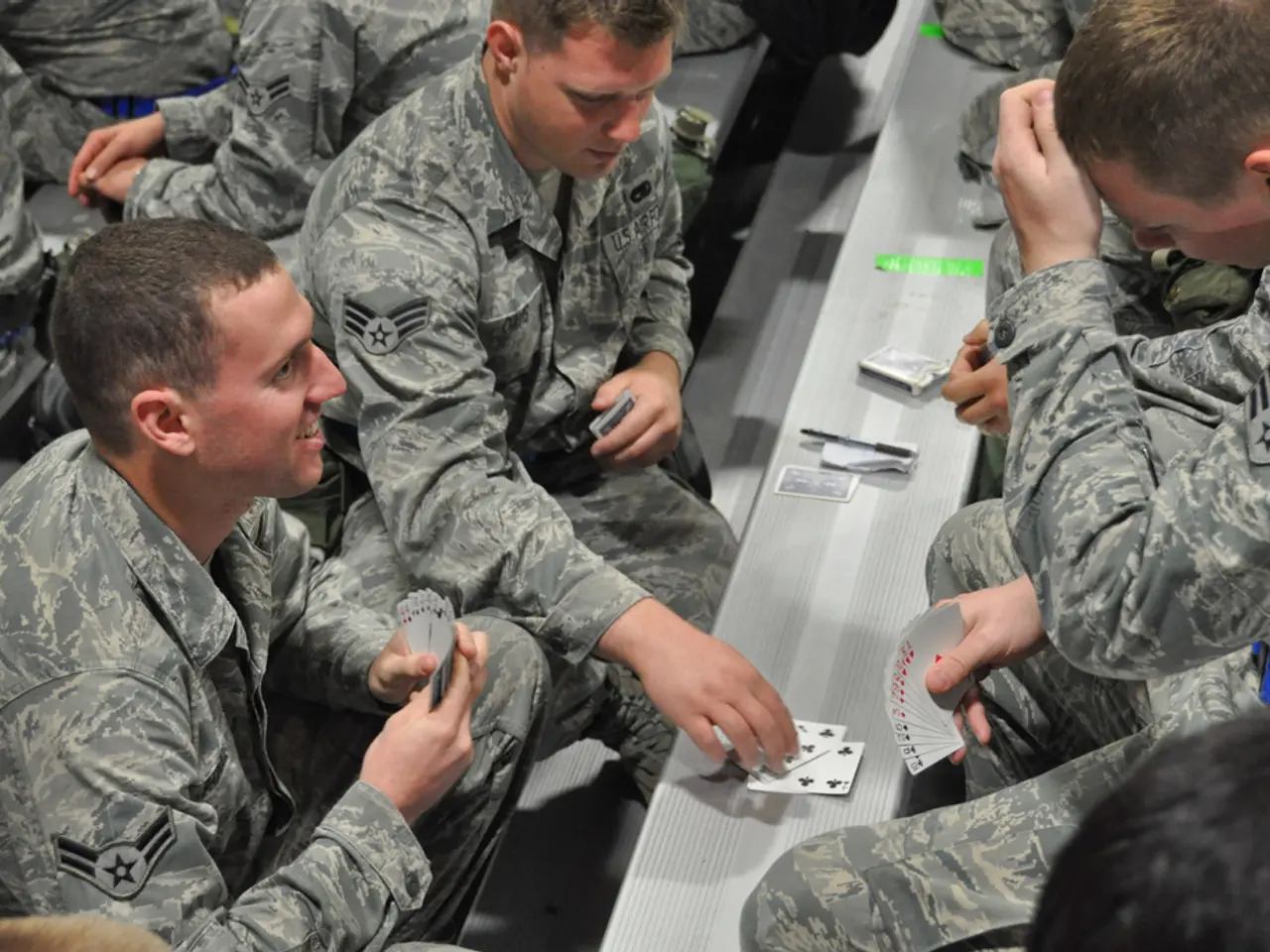Preparing for Your Debut Poker Competition: Poker Tournament Tactics on a Psychological Level
In the world of poker tournaments, success often hinges not just on card skills but also on mental fortitude. For beginners, navigating the emotional rollercoaster can be challenging. However, by adopting key strategies, you can develop a winning tournament mindset.
One fundamental strategy is to play a tight-aggressive style. This means focusing on playing fewer hands but playing them aggressively. By carefully selecting strong starting hands and betting or raising rather than limping, you minimise risk, help disguise your hand strength, and put pressure on opponents.
Avoiding limping and being the aggressor early in tournaments also helps control the game's pace and builds your chip stack. Beginners should recognise the importance of aggressive play in the early stages.
Staying composed and avoiding 'tilt' is another crucial aspect. Tilt is a state of emotional agitation that leads to poor decision-making. Regardless of skill level, tilt can negatively affect most tournament players. It often stems from negative emotions like anger, disappointment, or frustration, but it can also come from being on a winning streak. Acknowledging and naming the emotion can reduce its intensity and help you regain control.
Playing solid and patient poker early in tournaments is essential. Survival and chip preservation should be the focus rather than reckless chip accumulation. Avoid marginal spots and focus on solid decisions to stay in the game longer.
Understanding opponents' playing styles is also vital. Whether they are tight, loose, passive, or aggressive can guide when to bluff or value bet. For example, bluff less against loose players who call often, but consider stealing blinds against tight players who fold frequently.
Using mathematical tools like pot odds and equity is another essential skill for beginners. Learning basic math to evaluate whether calling bets is profitable based on odds and winning chances helps avoid emotional calls and supports rational play.
Lastly, only play when you feel mentally prepared. Playing poker requires focus and a clear mind. If you feel tired, distracted, or emotional, it is better to skip the session.
In summary, the core mental game advice is to cultivate patience, maintain emotional control, and follow a disciplined, aggressive strategy focused on strong hands. This approach helps beginners avoid common psychological pitfalls and develop a winning tournament mindset.
By implementing these strategies, you'll be well on your way to becoming a formidable poker tournament player. Good luck at the tables!
Reading poker blogs can provide valuable insights into casino-games strategy, like the importance of adopting a tight-aggressive style in casino-and-gambling tournaments. Additionally, understanding poker opponents' playing styles, such as their tendencies to be tight, loose, passive, or aggressive, is key to making strategic decisions like when to bluff or value bet.




